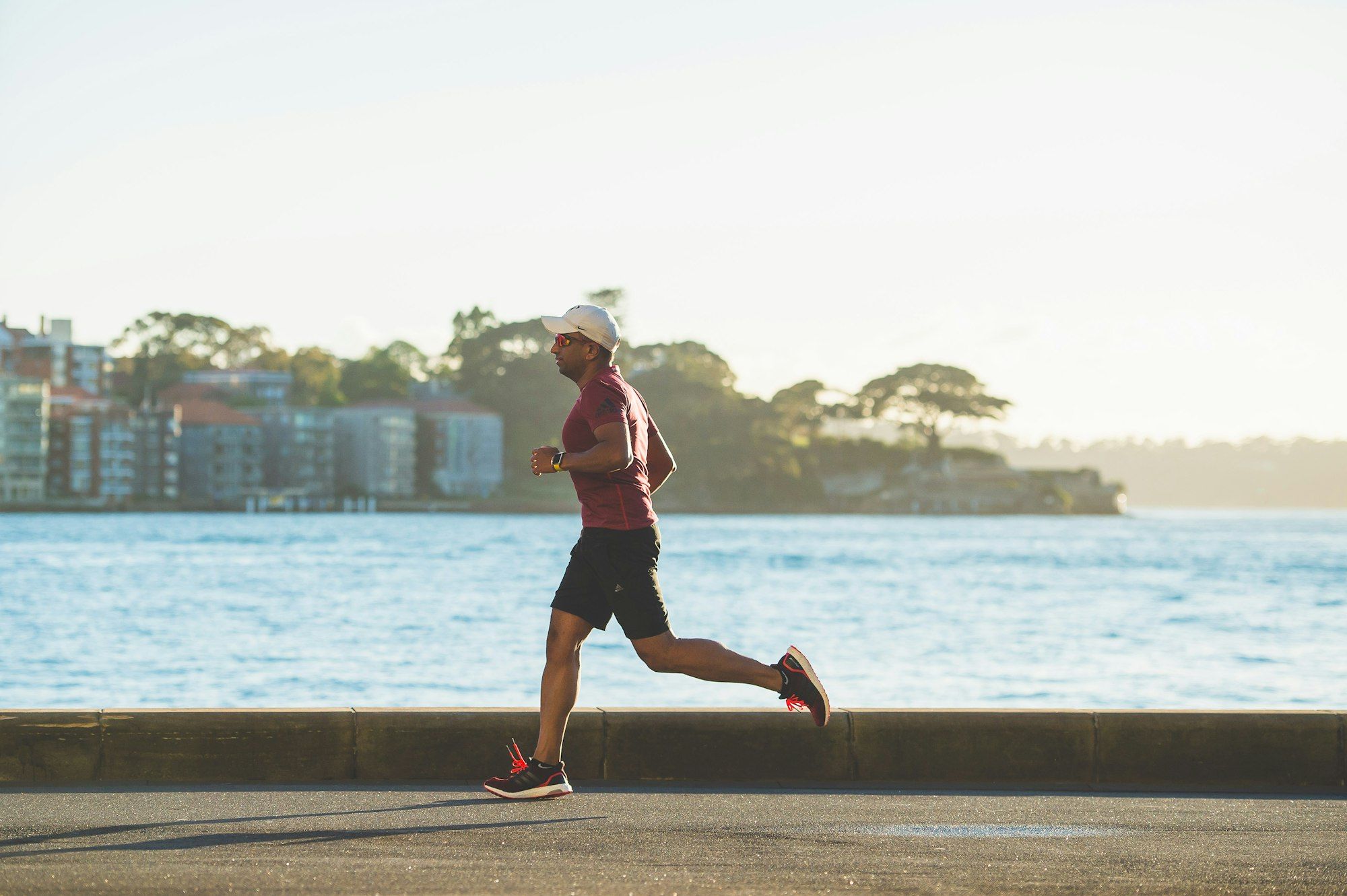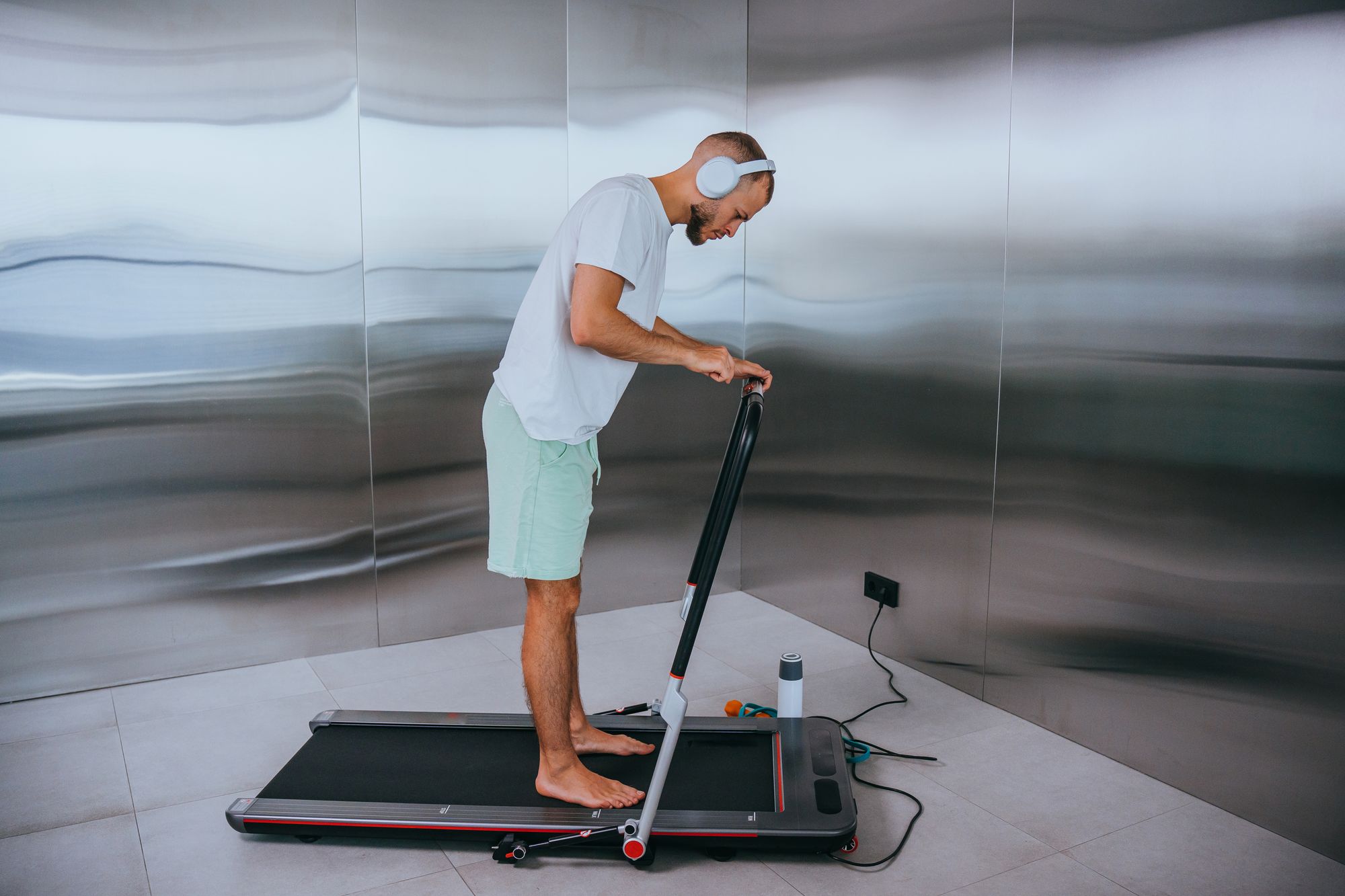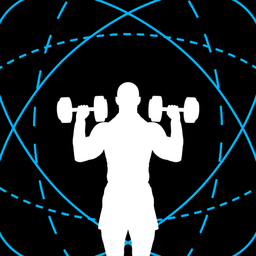Does Doing Cardio for Weight Loss Work? (It’s Complicated)
Doing cardio for weight loss doesn't always work out. Turns out, you may even gain weight! Find out why and what you could do about it here.

Um, wait a minute.
If 1) calorie deficit = weight loss and 2) cardio = calorie deficit, then it stands to reason that cardio = weight loss — so, what’s the complication here?
Well. While statement #1 is a fact, like how:
- The Earth is not flat (it’s not perfectly round, either, but more like a slightly squashed sphere called an ellipsoid; the more you know ...)
- Australia is wider than the moon
- An ostrich’s eye is bigger than its brain
… statement #2 doesn’t always hold up its end of the bargain. How do we know? By looking at:
The relationship between cardio and weight loss in research
Here are 3 different studies:
Given *waves hands in air* all that, when faced with the question, “What’s the relationship between cardio and weight loss?” it seems like our answer is the same as this dude's — tough question:
@jordan_the_stallion8 #stitch with @Meet Cutes NYC #fypシ
♬ original sound - Jordan_The_Stallion8
Doing cardio for weight loss doesn’t always work. Why?
Researchers have floated 3 theories:
- Compensatory reductions in energy expenditure: After cardio, you tend to move less throughout the day (e.g., take fewer steps or fidget less), decreasing your NEAT levels and, in turn, total daily energy expenditure.
- Compensatory increases in appetite: You feel hungrier after cardio, so you (often subconsciously) “eat back” your calories. Sometimes, you may even “overdo” it — explaining why 10.1% of individuals gained weight on cardio interventions in the 2023 RCT mentioned earlier.
- Waning motivation to exercise over time: Research shows that exercise dampens motivation for physical activity.
So, is there a point in doing cardio for weight loss?
We mean … the evidence is pretty damning: cardio just isn’t very effective for weight loss.
And in case you’re wondering whether doing cardio fasted changes things …

But before you swear off cardio, know this.
All 3 mechanisms preventing weight loss (or considerable weight loss) on cardio appear subject to considerable inter-individual variation.
This means you may not feel the need to:
- Laze around on the sofa or
- Stuff your face or
- Skip out on your gym sessions
… as much as the next person. So, to find out if you’re one of the lucky ones, you’ll have to track your response to cardio.
Ideally, you’d log your average steps, food intake (note: you don’t have to track your calories; you could simply write down what you ate, e.g., stir-fried chicken and rice, if you wish), and training frequency for 2 weeks.
Then, add cardio to the mix and see how those things change.
Slowly adjust your cardio levels until you find one that has minimal adverse impact on your energy expenditure, appetite, and motivation to work out.
(Please don’t be a smart *ahem* 🍑 and say that your sweet spot is zero cardio; you still need to do some cardio for health reasons.)
Don’t just do cardio for weight loss
Ultimately, cardio is just a tool in your fat loss toolbox. There are many others you could use.
A 2023 systematic review published in Advances in Nutrition suggests that you’d see the best weight loss results by using a few tools together at the same time.
More specifically, here’s how the researchers ranked the fat loss protocols in order of most to least effective compared to no intervention:
Energy restriction + resistance training
Energy restriction + mixed exercise
Energy restriction + aerobic training
Energy restriction + high protein
Energy restriction
Mixed exercise
Resistance training
5:2 intermittent diet
Aerobic training (LEAST EFFECTIVE)
This means, for best results, you should pair cardio with:
Cardio + energy restriction + enough protein + strength training: 😵💫
How are you ever going to stay on top of all that?
An all-in-one fat loss system
Say no to overwhelm and yes to an all-in-one fat loss system.
GymStreak is an AI-powered personal trainer app that’ll help you plan and track your fitness + nutrition programs —tailored to your unique fitness goals and personal preferences (e.g., workout frequency, equipment availability, and dietary restrictions).
Everything you need to seriously boost your chances of successful weight loss.
Don’t just take our word for it; see how GymStreak could help you here:
Workout Programming + Nutrition Tracking, Off Your Hands
*sigh of relief* We'll guide you through it all — step-by-step. Just download the app, and you'll be making progress toward your dream body like never before.
References
Broskey, Nicholas T., et al. “Effect of Aerobic Exercise-Induced Weight Loss on the Components of Daily Energy Expenditure.” Medicine and Science in Sports and Exercise, vol. 53, no. 10, Oct. 2021, pp. 2164–72. PubMed, https://doi.org/10.1249/MSS.0000000000002689.
---. “Effect of Aerobic Exercise-Induced Weight Loss on the Components of Daily Energy Expenditure.” Medicine and Science in Sports and Exercise, vol. 53, no. 10, Oct. 2021, pp. 2164–72. PubMed, https://doi.org/10.1249/MSS.0000000000002689.
Dorling, James, et al. “Acute and Chronic Effects of Exercise on Appetite, Energy Intake, and Appetite-Related Hormones: The Modulating Effect of Adiposity, Sex, and Habitual Physical Activity.” Nutrients, vol. 10, no. 9, Aug. 2018, p. 1140. PubMed, https://doi.org/10.3390/nu10091140.
Eglseer, Doris, et al. “Nutrition and Exercise Interventions to Improve Body Composition for Persons with Overweight or Obesity Near Retirement Age: A Systematic Review and Network Meta-Analysis of Randomized Controlled Trials.” Advances in Nutrition, vol. 14, no. 3, May 2023, pp. 516–38. ScienceDirect, https://doi.org/10.1016/j.advnut.2023.04.001.
Flack, Kyle D., et al. “Altered Motivation States for Physical Activity and ‘appetite’ for Movement as Compensatory Mechanisms Limiting the Efficacy of Exercise Training for Weight Loss.” Frontiers in Psychology, vol. 14, 2023, p. 1098394. PubMed, https://doi.org/10.3389/fpsyg.2023.1098394.
Jakicic, John M., and Renee J. Rogers. “Association of Eating Behaviors with Variability in Weight Change in Response to Physical Activity Interventions in Adults with Overweight.” Nutrients, vol. 15, no. 15, Aug. 2023, p. 3452. PubMed, https://doi.org/10.3390/nu15153452.
Ltd, HealthMatch Pty. “Do You Lose Weight By Going To The Bathroom?” HealthMatch, 12 Nov. 2021, https://healthmatch.io/weight-management/do-you-lose-weight-when-you-poop.
McCarthy, David, and Aloys Berg. “Weight Loss Strategies and the Risk of Skeletal Muscle Mass Loss.” Nutrients, vol. 13, no. 7, July 2021, p. 2473. PubMed Central, https://doi.org/10.3390/nu13072473.
Morton, Robert W., et al. “A Systematic Review, Meta-Analysis and Meta-Regression of the Effect of Protein Supplementation on Resistance Training-Induced Gains in Muscle Mass and Strength in Healthy Adults.” British Journal of Sports Medicine, vol. 52, no. 6, Mar. 2018, pp. 376–84. bjsm.bmj.com, https://doi.org/10.1136/bjsports-2017-097608.
Steele, James, et al. “Slow and Steady, or Hard and Fast? A Systematic Review and Meta-Analysis of Studies Comparing Body Composition Changes between Interval Training and Moderate Intensity Continuous Training.” Sports, vol. 9, no. 11, 11, Nov. 2021, p. 155. www.mdpi.com, https://doi.org/10.3390/sports9110155.


